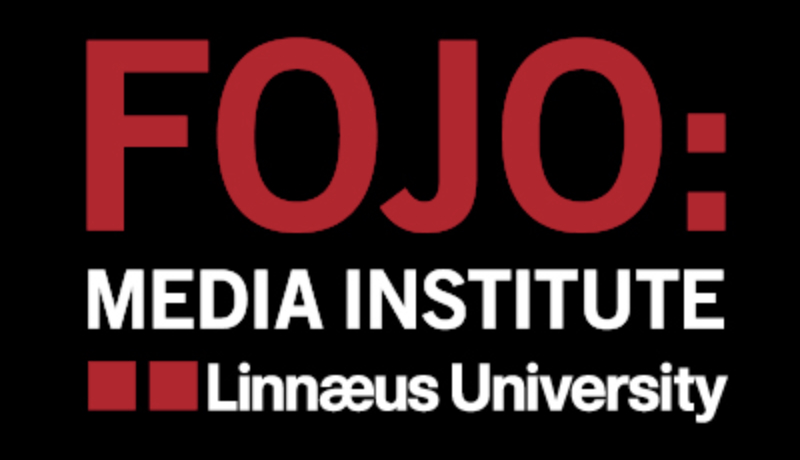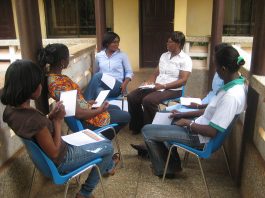
Media Helping Media is hosted by the Fojo Media Institute and is one of its official training resources.
From our BASIC JOURNALISM section
The active and passive voices in news
Make your news writing more interesting by using the “active voice”. Bob Eggington explains this simple and effective technique.
How to create a structured news report
This module was written for trainee journalists in Zimbabwe who were keen to learn how to produce in-depth video reports about life in their remote rural communities.
From our EDITORIAL ETHICS section
Photojournalism and ethics
Media Helping Media has produced a set of suggested ethical guidelines for video and photojournalists in order to try to help those in the field navigate everyday editorial issues.
Is your journalism ethical?
If the content you produce pushes an agenda, spins a line, favours a sector of society, is manipulated by subjective values, you are probably producing PR copy or even propaganda.
From our ADVANCED JOURNALISM section
Confronting editorial bias in election coverage
Allegations of bias in the news media happen all the time, but they are most evident at election time. When deadlines are tight and pressures are greatest, the weighing of these factors may be less thorough.
Presenting and exploiting content online
One of the skills of news website management is knowing how to exploit each story in all relevant sections, so that it appears on multiple section indices.
 Unfortunately, Facebook has decided to disable our Media Helping Media Facebook group. Our Facebook page is still live.
Unfortunately, Facebook has decided to disable our Media Helping Media Facebook group. Our Facebook page is still live.
 Do you have any wisdom to share with those without access to formal training? If so please get in touch.
Do you have any wisdom to share with those without access to formal training? If so please get in touch.
 Media Helping Media (MHM) provides free training resources for those starting off in journalism. Read more …
Media Helping Media (MHM) provides free training resources for those starting off in journalism. Read more …
 The content on Media Helping Media (MHM) is released via Creative Commons BY NC SA 4.0. Please read the MHM copyright terms.
The content on Media Helping Media (MHM) is released via Creative Commons BY NC SA 4.0. Please read the MHM copyright terms.
20 ways a suspect can help a journalist
Sources are one of the most valuable resources for a journalist. Without sourced information, the reports produced may end up being padded with rumour and personal opinion.
Why would anyone want to talk to a journalist?
There may be many reasons why someone will agree to open up to a reporter, and some will be beyond their control. It's worth taking time to try to figure out the motives before interviewing them.
10 tips for investigating corruption
An investigative journalist has to plot the geometry of bribery, determine the currency of influence, document the paper trail, and deal with threats and retaliation when investigating corruption.
Story development, ensuring all angles are covered
Asking the questions that need to be asked
In a previous module we looked at the topic of proactive journalism, where journalists are encouraged to...
Story weighting system for breaking news
Introducing a story weighting system helps prioritises effort on the stories that are of most value to the target audience, it saves time, speeds up production, and helps avoid wasted effort.
Editorial considerations when a ‘big story’ breaks
When a big story breaks the following editorial considerations should be assessed.
Managing people and setting objectives
For most staff, personal objectives are the most important, but they also need to know about the wider objectives. It is the line manager's responsibility to set personal objectives to help employees contribute fully.
Preparing and introducing a media corporate plan
The corporate plan is the most important tool in a media chief executive’s toolbox. Without it the media organisation can become lost and directionless.
How to develop a media sales strategy
Sales is one of the most important elements of a media company's commercial strategy. The sustainability of the business relies on its ability to generate income.
Covering a tragedy – scenario
In this scenario we look at how a journalist should act when they witness a tragedy unfolding and have to decide whether to help, or to stand by and report. The scenario also looks at how senior editorial managers could, and probably should, support their journalists working in difficult conditions.
Journalistic integrity – scenario
You are a political broadcast journalist and are invited to speak at public event where the organisers want you to explain the role of the journalist in covering elections. After the event they offer you a gift, and ask whether you would be prepared to do some media training for politicians. What do you do?
Interviewing integrity – scenario
An editorial integrity scenario where a journalist on a large salary faces the dilemma of whether to compromise their editorial integrity, become a whistleblower, or resign. What would you do?
How to design a successful media training plan
A well-designed media training plan could make the difference between the success and the failure of a media business. Get it wrong and you could be adding to the problems you were asked to address.
How media assistance could improve
Trainers have as much to learn as they have to give. That’s the message to those offering media assistance in transition and post-conflict countries from some of those on the receiving end.
The essential qualities of a media trainer
What it takes to be a media trainer
Media trainers must have recent, valid experience of all they teach. They need to understand the pressures...




